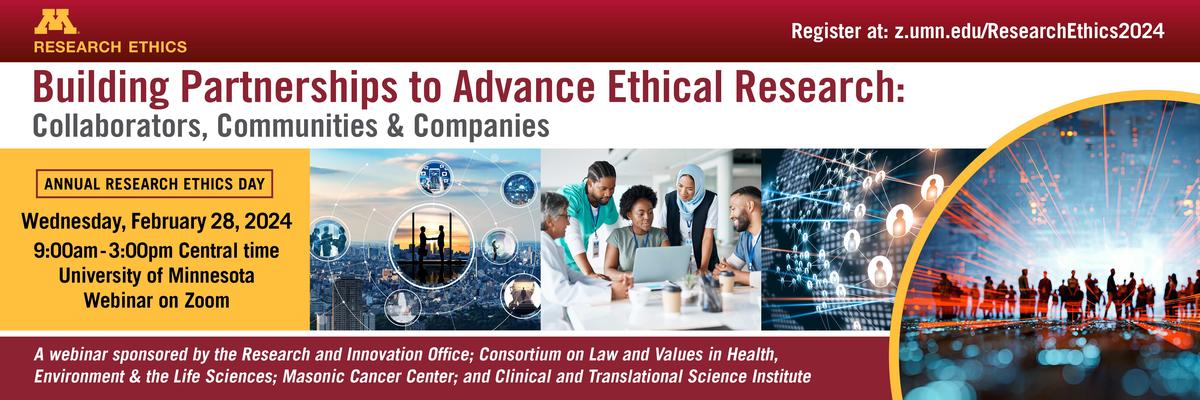
As research teams become larger and more complex, forging effective partnerships to ensure the ethical conduct of research has become more challenging. Yet creating successful collaborations to ensure the responsible conduct of research is crucial at all stages of the research process. Researchers need to build a team that successfully integrates investigators, research staff, and trainees in the responsible conduct of research. They need to be able to partner respectfully in community-engaged and community-led research, building alliances to advance equity, inclusion, and cross-learning. And in creating relationships with funders and companies to develop and apply the research, researchers need to fulfill ethical duties including disclosure and managing conflicts of interest and commitment.
Join interdisciplinary experts for a unique conference on how to build partnerships with investigators, communities, clinical research professionals, and companies to promote the ethical conduct and translation of research. National leaders will discuss successes and challenges in a wide range of research programs. They will consider the elements of successful collaboration that promote research integrity, inclusivity, mutual respect, and accountability in the conduct of research. As a public, land-grant research university, we aim to explore these vital issues with our faculty, staff, trainees, students, and community, as well as a national audience.
Conference Agenda
Annual Research Ethics Day Conference - Building Partnerships to Advance Ethical Research: Collaborators, Communities & Companies
| 9:00am Central Time | Welcome & Land Acknowledgment |
Moderator: Susan M. Wolf, JD, Regents Professor; McKnight Presidential Professor of Law, Medicine & Public Policy; Faegre Baker Daniels Professor of Law; Professor of Medicine; Chair, Consortium on Law and Values in Health, Environment & the Life Sciences, University of Minnesota
| |
| 9:15am | Building Research Partnerships: The NIH All of Us Research Program Experience |
Moderator: Francis X. Shen, JD, PhD, Professor of Law & Solly Robins Distinguished Research Fellow; Co-Chair, Consortium on Law on Values in Health, Environment & the Life Sciences, University of Minnesota
| |
| 10:15am | Building Research Collaborations Among Investigators for Responsible Conduct of Research: From Labs to Complex Teams & Wider Collaborations |
Moderator: Kimberly Kirkpatrick, PhD, Associate Vice President for Research & Innovation, University of Minnesota
| |
| 11:15am | Break |
| 11:30am | Building Ethical Collaborations in Community-Engaged and Community-Led Research |
Moderator: Karen R. Diver, MPA, Senior Advisor to the President for Native American Affairs, University of Minnesota
| |
| 12:30pm | Lunch Break |
| 1:00pm | Building Collaborations with Clinical Research Professionals & Research Staff for the Ethical Conduct of Research |
Moderator: Joanne Billings, MD, MPH, Associate Vice President for Research Integrity and Compliance; Associate Professor of Medicine in the Division of Pulmonary, Allergy, Critical Care and Sleep Medicine, University of Minnesota
| |
| 2:00pm | Building Collaborations with Companies for Ethical Research & Translation |
Moderator: Susan M. Wolf, JD, Regents Professor; McKnight Presidential Professor of Law, Medicine & Public Policy; Faegre Baker Daniels Professor of Law; Professor of Medicine; Chair, Consortium on Law and Values in Health, Environment & the Life Sciences, University of Minnesota
| |
| 2:55pm | Closing Remarks |
| |
| 3:00pm | Adjourn |
Speaker Biographies
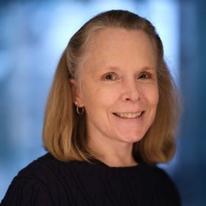
L. Michelle Bennett, PhD, is the CEO and Principal for LMBennett Consulting, LLC. She was formerly Director, Center for Research Strategy, National Cancer Institute (NCI), NIH. She spent two years as an independent researcher before heading to the National Cancer Institute to support a newly formed organization that brought basic scientists together with clinical researchers into a single organization. The goal of this novel merger was to facilitate translational research. It was there that her interest in what was contributing to successful team functioning was sparked.
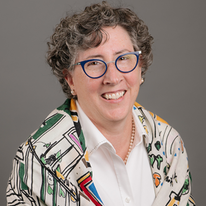
Joanne Billings, MD, MPH, is Associate Vice President for Research Integrity & Compliance and Associate Professor of Medicine in the Division of Pulmonary, Allergy, Critical Care and Sleep Medicine at the University of Minnesota. Her primary research and clinical work focuses on cystic fibrosis (CF). She has a particular interest in women's health issues in patients with CF.
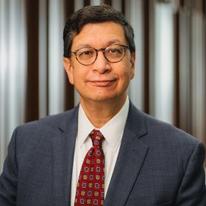
Jorge L. Contreras, JD, is the James T. Jensen Endowed Professor for Transactional Law and Director of the Program on Intellectual Property and Technology Law at the University of Utah S.J. Quinney College of Law. He teaches and researches in the areas of intellectual property, property law, technical standardization, antitrust, and science policy. In 2020 he received the University of Utah's Distinguished Research Award and is an elected member of the American Law Institute. He currently serves as the Co-Chair of the Interdisciplinary Division of the ABA’s Section of Science & Technology Law and a member of the Advisory Board of the American Antitrust Institute.
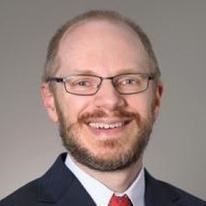
Joshua C. Denny, MD, MS, is the Chief Executive Officer for the All of Us Research Program. All of Us seeks to enroll at least one million diverse participants to build an indispensable resource that accelerates precision medicine for all populations. He was a member of the Advisory Committee to the NIH Director Precision Medicine Initiative Working Group, which developed the program’s initial scientific blueprint. He then led the program’s initial prototyping project and the All of Us Data and Research Center. He was named CEO of All of Us in January 2020. Prior to joining NIH, Dr. Denny was a Professor of Biomedical Informatics and Medicine, Founding Director of the Center for Precision Medicine, and Vice President for Personalized Medicine at Vanderbilt University Medical Center, and a practicing physician. In addition to his leadership role with All of Us, Dr. Denny oversees the Precision Health Informatics Section at the National Human Genome Research Institute.
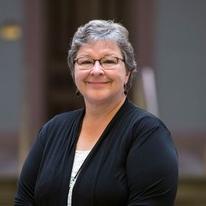
Karen R. Diver, MPA, (Fond du Lac Band of Lake Superior Chippewa) is the Senior Advisor to the President for Native American Affairs at the University of Minnesota. Her previous roles in higher education included serving as a Faculty Fellow for Inclusive Excellence at the College of St. Scholastica, and as faculty with the Master of Tribal Administration and Governance program at the University of Minnesota Duluth. Ms. Diver was also an appointee of President Obama as the Special Assistant to the President for Native American Affairs. She also served as Chairwoman of the Fond du Lac Band of Lake Superior Chippewa from 2007-2015. She is a member of the Board of Governors for the Honoring Nations Program with the Harvard Kennedy School Project for Indigenous Governance and Development.
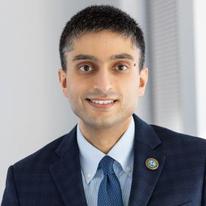
Erwin Gianchandani, PhD, is the National Science Foundation’s Assistant Director for Technology, Innovation and Partnerships (TIP), leading the newly established TIP Directorate. Previously he served as the Senior Advisor for Translation, Innovation and Partnerships, where he helped develop plans for the new TIP Directorate in collaboration with colleagues at NSF, other government agencies, industry, and academia. During the previous six years, Dr. Gianchandani was the NSF Deputy Assistant Director for Computer and Information Science and Engineering (CISE), twice serving as Acting Assistant Director. Before joining NSF in 2012, he was the inaugural Director of the Computing Community Consortium, providing leadership to the computing research community in identifying and pursuing bold, high-impact research directions such as health information technology and sustainable computing.
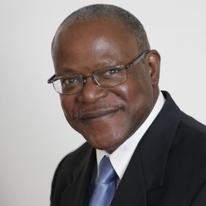
Rev. Alvin C. Hathaway, Sr., PhD, DMin, is on the Leadership Core and is Co-Founder of the African Ancestry Neuroscience Research Initiative. Inducted into the Martin Luther King, Jr., Board of Preachers at Morehouse College, Dr. Hathaway has developed a national reputation in faith-based community economic development. Through his creation of Community Development Entities, he has participated in funding over $3 Billion in redevelopment projects in urban markets throughout America. He has served as Co-Chairperson of the $5M 5-Year PCORI Study on Middle School Mental Health Interventions, and as Co-Chairperson of the $30M 5-Year Promise Neighborhood Implementation Grant. He is an expert on the intersection between faith, research, and mental health.
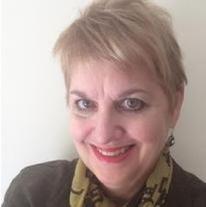
Carolynn Thomas Jones, DNP, MSPH, RN, is a Clinical Professor, Director of the Master of Clinical Research Program, and Co-Director of Workforce Development, Center for Clinical and Translational Science, College of Nursing, at Ohio State University. Dr. Jones has over 30 years of experience working in clinical research roles ranging from coordinator, director, and educator to PI. In addition to managing operations for multi-center clinical trials, she has also worked in multi-disciplinary clinical research workforce development in the U.S. and in low-resource countries. Dr. Jones is a founding member of the Joint Taskforce for Clinical Research Competence, leading to international adoption of clinical research competencies to drive workforce development and curricula. As mPI of the NCATS-sponsored DIAMOND grant she helped to bridge training and connections within the clinical research workforce across CTSA hubs through a web-based portal used for shared training and adopted by NCATS/NIH.
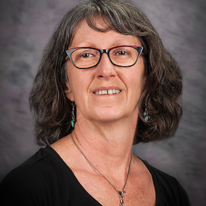
Kimberly Kirkpatrick, PhD, is the Associate Vice President (AVP) for Research & Innovation in the Research & Innovation Office (RIO) at the University of Minnesota. In her AVP role, Dr. Kirkpatrick holds a joint appointment in RIO and the Office of Academic Clinical Affairs. She oversees University shared research resources, core research services, and related research infrastructure, with responsibilities that include managing and growing research infrastructure resources through extramural grants and other funding, with an emphasis on interdisciplinary research collaborations between the health sciences and other colleges across the UMN system. She also assists the Vice President for Research & Innovation in managing the office’s 10 academic centers and institutes and in formalizing and starting up new collaborations.
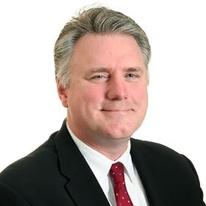
Boyd Kumher, MBA, MPM, RN, is the Chief Compliance Officer for the University of Minnesota. Kumher joined the U in 2016. Prior to his arrival, he was the inaugural Chief Compliance Officer for Case Western Reserve University. He comes to the institution with 20 years of experience working in higher education and academic medical centers.
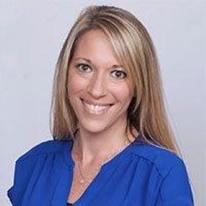
Jennifer McLeland, PhD, ACRP-PM, CCRC, is a Manager in the Division of Clinical Research at Washington University School of Medicine. She has served in various research roles in the Department of Neurology for the past 20 years. She also serves as the Deputy Director of a research consortium for neurodegenerative disorders that is co-led by her university. Dr. McLeland is the current Chair of the Professional Ethics Committee at the Association of Clinical Research Professionals (ACRP).
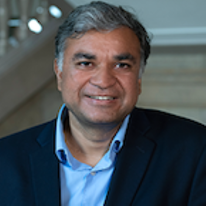
Shashank Priya, PhD, serves as the University of Minnesota’s Vice President for Research & Innovation. In this position, he oversees a $1+ billion research enterprise across all campuses and facilities. He manages units responsible for administration of sponsored projects, research and regulatory compliance, and technology commercialization, as well as 10 interdisciplinary academic centers and institutes. He also oversees a growing corporate engagement portfolio for the University. Dr. Priya is a Professor of Chemical Engineering and Materials Science.
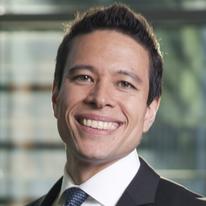
Francis X. Shen, JD, PhD, is a Professor and Solly Robins Distinguished Research Fellow at the University of Minnesota Law School, and also a Faculty Member in the UMN Graduate Program in Neuroscience. He is Co-Chair of the Consortium on Law and Values in Health, Environment & the Life Sciences. He directs the Shen Neurolaw Lab and is Chief Innovation Officer of the Center for Law, Brain & Behavior at Massachusetts General Hospital. His research interests include the ethical, legal, and social implications of emerging neuroimaging and neuromodulation technologies and AI.
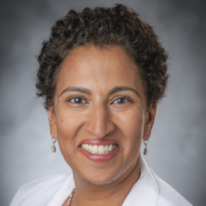
Geeta Krishna Swamy, MD, is the Haywood Brown, MD Distinguished Professor of Women’s Health in the Department of Obstetrics & Gynecology, Division of Maternal-Fetal Medicine at Duke University. Dr. Swamy specializes in perinatal infection, maternal immunization, and complications of pregnancy. She is principal investigator on numerous grants (NIH, CDC, and industry sponsors) for studies of novel and licensed vaccines during pregnancy including influenza, pertussis, RSV, Group B strep, and COVID-19. She is a consultant on maternal immunization to the Gates Foundation, WHO, and the National Academy of Medicine. Dr. Swamy is also the Associate Vice President for Research and Vice Dean for Scientific Integrity for Duke University and the School of Medicine. She also oversees Duke’s Advancing Scientific Integrity, Services, & Training (ASIST) initiative to provide innovative tools and resources for data management and sharing.
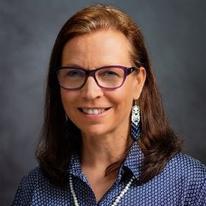
Karina L. Walters, PhD, MSW, is Director of the Tribal Health Research Office (THRO) at the National Institutes of Health (NIH). In this role, Dr. Walters works to advance initiatives to ensure Tribally informed biomedical and behavioral research, enhance NIH’s Tribal Consultation and Tribal engagement efforts, and coordinate American Indian and Alaska Native (AI/AN) research and research-related activities across NIH and with other federal entities. A social epidemiology and health prevention scholar, Dr. Walters has more than 28 years of AI/AN health research experience, encompassing foundational science, disease prevention, health promotion, and intervention research. She has conducted social epidemiological research on the environmental, historical, social, and cultural determinants of health and health equity in AI/AN communities as well as designed and empirically tested Tribally derived chronic disease prevention interventions.
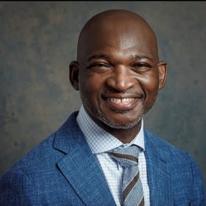
Karriem S. Watson, DHSc, MS, MPH, is the Chief Engagement Officer of the National Institutes of Health’s All of Us Research Program. Dr. Watson leads the All of Us Research Program’s efforts to foster relationships with participants, communities, researchers, and providers across the United States to help build one of the largest, most diverse health databases of its kind to study health and illness. Prior to joining the NIH, Dr. Watson spent over 15 years as a community-engaged research scientist with research funding from the NIH addressing cancer prevention and control. Dr. Watson also held administrative roles in leading research and engagement in Federally Qualified Health Centers (FQHCs) in the Chicago area.
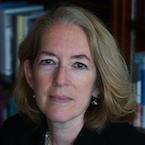
Susan M. Wolf, JD, is a Regents Professor; McKnight Presidential Professor of Law, Medicine & Public Policy; Faegre Baker Daniels Professor of Law; and Professor of Medicine at the University of Minnesota. She is Chair of the University’s Consortium on Law and Values in Health, Environment & the Life Sciences. She is an elected member of the National Academy of Medicine (NAM) and a Fellow of the American Association for the Advancement of Science (AAAS). Prof. Wolf is a member of the National Academies Strategic Council for Research Integrity, Excellence, and Trust.
Planning Committee

Susan M. Wolf, JD, is a Regents Professor; McKnight Presidential Professor of Law, Medicine & Public Policy; Faegre Baker Daniels Professor of Law; and Professor of Medicine at the University of Minnesota. She is Chair of the University’s Consortium on Law and Values in Health, Environment & the Life Sciences. She is an elected member of the National Academy of Medicine (NAM) and a Fellow of the American Association for the Advancement of Science (AAAS). Prof. Wolf is a member of the National Academies Strategic Council for Research Integrity, Excellence, and Trust.
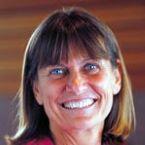
Frances Lawrenz, PhD, is Professor Emeritus in the Department of Educational Psychology at the University of Minnesota. Her research focuses on science and mathematics program evaluation, utilizing a variety of techniques and usually involving mixed methodologies. She has been recognized by the American Educational Research Association and the National Association for Research in Science Teaching.
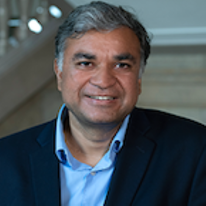
Shashank Priya, PhD, serves as the University of Minnesota’s Vice President for Research and Innovation. In this position, he oversees a $1+ billion research enterprise across all campuses and facilities. He manages units responsible for administration of sponsored projects, research and regulatory compliance, and technology commercialization, as well as 10 interdisciplinary academic centers and institutes. He also oversees a growing corporate engagement portfolio for the University. Dr. Priya is a Professor of Chemical Engineering and Materials Science.
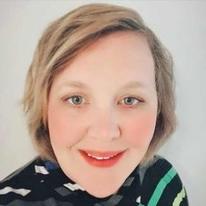
Danielle Rintala, MS, directs the Risk Intelligence and Compliance Team (RIACT) in the Office of the Vice President for Research and Innovation at the University of Minnesota. RIACT monitors near- and long-term research risks; conducts compliance investigations, ensuring compliance in research-associated financial transactions and research registries; and manages Responsible Conduct of Research (RCR) training and the Certified Approver program. Prior to joining the University of Minnesota, she was the Associate Director of Research Compliance and Biosafety Officer at the University of Wisconsin-Milwaukee.
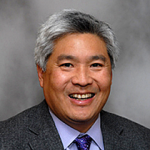
Douglas Yee, MD, is Director of the Masonic Cancer Center, Professor of Medicine and Pharmacology, and John H. Kersey Chair in Cancer Research at the University of Minnesota. As Director of the Cancer Center, he serves as the point person for all cancer research at the University. He is a medical oncologist with a specialty in breast cancer. His laboratory has been interested in the regulation of cancer cells by the insulin-like growth factors (IGFs) and insulin. He serves as the site Principal Investigator on several clinical trials that employ experimental therapies targeted against IGF receptor and the PI3K pathway. He is Chair of the Agent Selection Committee and serves on the Executive Committee of the I-SPY2 trail, which is designed to validate investigational therapies in the neoadjuvant treatment of breast cancer.
Advisory Committee
2024 Research Ethics Day Conference Advisory Committee
Resources
Bennett LM, Cardenas E, O'Rourke M. Collaboration Agreement Template. 1-20. Accessed Feb. 26, 2024.
Bennett LM, Cardenas E, O'Rourke M. Collaboration Agreement Template. Zenodo. 2022;(Version 1);doi:10.5281/zenodo.6394789.
Bennett LM, Gadlin H, Marchand C. Collaboration and Team Science: A Field Guide. 2018. Accessed Feb. 26, 2024.
Buchanan DA, Goldstein J, Pfalzer AC, et al. Empowering the Clinical Research Coordinator in Academic Medical Centers. Mayo Clinic Proceedings 2021;5(2):265-273;doi:10.1016/j.mayocpiqo.2020.09.014.
Chadwick JQ, Copeland KC, Daniel MR, et al. Partnering in Research: A National Research Trial Exemplifying Effective Collaboration With American Indian Nations and the Indian Health Service. American Journal of Epidemiology 2014;180(12):1202-1207;doi:10.1093/aje/kwu246.
Contreras JL. 'In the Public Interest' – University Technology Transfer and the Nine Points Document – An Empirical Assessment. University of Utah College of Law Research Paper No. 476, U.C. Irvine Law Review 2023;12(2):435.
Claw KG, Anderson MZ, Begay RL, et al. A Framework for Enhancing Ethical Genomic Research with Indigenous Communities. Nature Communications 2018;9:2957;doi:10.1038/s41467-018-05188-3.
Freel SA, Snyder DC, Bastarache K, et al. Now Is the Time to Fix the Clinical Research Workforce Crisis. Clinical Trials 2023;20(5):457-462;doi:10.1177/17407745231177885.
Garrison NA, Carroll SR. Genetic Research with Indigenous Peoples: Perspectives on Governance and Oversight in the US. Frontiers in Research Metrics and Analytics 2023;8:1286948;doi:10.3389/frma.2023.1286948.
Garrison NA, Hudson M, Ballantyne LL, et al. Genomic Research Through an Indigenous Lens: Understanding the Expectations. Annual Review of Genomics and Human Genetics 2019;20:495-517;doi:10.1146/annurev-genom-083118-015434.
Hammack-Aviran C, Fair AM, Aldrich M, et al. Integrating Participants as Partners in Research Governance and Operations: An Approach from the All of Us Research Program Engagement Core. BMJ Open 2023;13(11): e068100;doi:10.1136/bmjopen-2022-068100.
Knapke JM, Jenkerson M, Tsao P, et al. Academic Medical Center Clinical Research Professional Workforce: Part 2 – Issues in Staff Onboarding and Professional Development. Journal of Clinical and Translational Science 2022;6(1):e81; doi:10.1017/cts.2022.412.
Knapke JM, Snyder DC, Carter K, et al. Issues for Recruitment and Retention of Clinical Research Professionals at Academic Medical Centers: Part 1 – Collaborative Conversations Un-Meeting Findings. Journal of Clinical and Translational Sceince 2022;6(1);e80;doi:10.1017/cts.2022.411.
Mapes BM, Foster CS, Kusnoor SV, et al. Diversity and Inclusion for the All of Us Research Program: A Scoping Review. PLoS One 2020;15(7):e0234962;doi:10.1371/journal.pone.0234962.
Mayo KR, Basford MA, Carroll RJ, et al. The All of Us Data and Research Center: Creating a Secure, Scalable, and Sustainable Ecosystem for Biomedical Research. Annual Review of Biomedical Data Science 2023;6:443-464;doi:10.1146/annurev-biodatasci-122120-104825.
Meslin EM, Rager JB, Schwartz PH, et al. Benchmarks for Ethically Credible Partnerships Between Industry and Academic Health Centers: Beyond Disclosure of Financial Conflicts of Interest. Clinical and Translational Medicine 2015;4:36;doi:10.1186/s40169-015-0077-y.
Multi-Regional Clinical Trials, the MRCT Center of Brigham and Women's Hospital and Harvard. Joint Task Force for Clinical Trial Competency. Accessed Jan. 5, 2024.
National Academies of Sciences, Engineering, and Medicine. On Leading a Lab: Strengthening Scientific Leadership in Responsible Research, A Workshop. Dec. 4-5, 2023. Accessed Jan. 3, 2024.
National Academies of Sciences, Engineering, and Medicine. Research and Application in Team Science. 2024. Accessed Jan. 3, 2024.
National Center for Advancing Translational Sciences, NIH. Alliances at NCATS.
National Institutes of Health, All of Us Research Program. All of Us Research Program Governance. 2024. Accessed Jan. 23, 2024.
National Institutes of Health, All of Us Research Program. All of Us Research Hub. 2024. Accessed Feb. 26, 2024.
National Institutes of Health, Tribal Health Research Office. NIH Strategic Plan for Tribal Health Research, FY 2019-2023. Accessed Jan. 3, 2024.
National Research Council. Enhancing the Effectiveness of Team Science. National Academies Press. 2015.
National Science Foundation. Technology, Innovation and Partnerships. N.d. Accessed Jan. 5, 2024.
Organisation for Economic Co-operation and Development. University-Industry Collaboration: New Evidence and Policy Options. 2019. Accessed Jan. 3, 2024.
Schwarz R. Eight Behaviors for Smarter Teams. Roger Schwarz and Associates. 2013; 1-12.
Schwartz RM, Bennett LM. Team Effectiveness Model for Science (TEMS): Using a Mutual Learning Shared Mindset to Design, Develop, and Sustain Science Teams. Journal of Clinical and Translational Science. 2021;5(1):e157;doi:10.1017/cts.2021.824.
UK Research and Innovation. Researchers and Research Teams. 2022. Accessed Jan. 3, 2024.
University of Minnesota Research & Innovation Office. Industry Partnerships for Researchers. 2024. Accessed Jan. 3, 2024.
Wilkins CH, Miller ST, Richmond AN, et al. Community-Engaged Research - Essential to Addressing Health Inequities. New England Journal of Medicine 2023;389(21):1928-1931;doi:10.1056/NEJMp2307774.
Presented by the Research & Innovation Office (RIO); Consortium on Law and Values in Health, Environment & the Life Sciences; Masonic Cancer Center; and Clinical Translational Science Institute, University of Minnesota.
This conference is part of Research Ethics Week (February 26 - March 1, 2024), during which the University of Minnesota focuses on professional development and best practices to ensure safety and integrity in research. A list of Research Ethics Week events is posted at this link.
Follow us on Twitter: @UMNconsortium
Join the conversation by using #ResearchEthics2024
Disclosure information is available here.
Land Acknowledgment:
The University of Minnesota - Twin Cities is built within the traditional homelands of the Dakota people. It is important to acknowledge the peoples on whose land we live, learn, and work as we seek to improve and strengthen our relations with our tribal nations. We also acknowledge that words are not enough. We must ensure that our institution provides support, resources, and programs that increase access to all aspects of higher education for our American Indian students, staff, faculty, and community members.
Continuing Education Information:
This activity has been approved for AMA PRA Category 1 Credit ™. An application will be made to the Minnesota Board of Continuing Legal Education. See webpage for additional information.
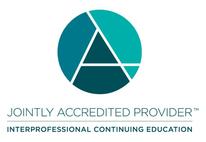
Accreditation Statement
In support of improving patient care, University of Minnesota, Interprofessional Continuing Education is jointly accredited by the Accreditation Council for Continuing Medical Education (ACCME), the Accreditation Council for Pharmacy Education (ACPE), and the American Nurses Credentialing Center (ANCC) to provide continuing education for the healthcare team.
Credit Designation Statements
American Medical Association (AMA)
The University of Minnesota, Interprofessional Continuing Education designates this live activity for a maximum of 4.75 AMA PRA Category 1 Credits™. Physicians should claim only the credit commensurate with the extent of their participation in the
activity.
Minnesota Board of Continuing Legal Education
This activity has been approved by the Minnesota Board of Continuing Legal Education for up to 4.75 Standard Credits.
Other Healthcare Professionals
Other healthcare professionals who participate in this CE activity may submit their statement of participation to their appropriate accrediting organizations or state boards for consideration of credit. The participant is responsible for determining whether this activity meets the requirements for acceptable continuing education.